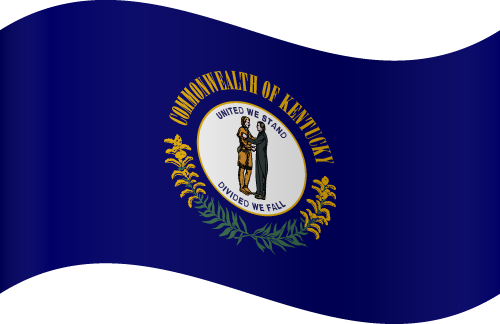Maryland Leave Laws and Holidays in 2025 offer employees a comprehensive set of rights and protections under Maryland Leave Laws, covering time off and workplace absences. From mandated paid sick leave to federal and state holiday entitlements, Maryland strives to balance employee well-being with employer obligations. Understanding these laws is crucial for both employees and employers to ensure compliance and to take full advantage of the benefits available in 2025. Using tools like Day Off, a top leave tracking app, can help streamline managing leave balances and ensure adherence to regulations. This article will delve into the various leave types, such as paid time off (PTO), sick leave, family leave, and highlight the holidays recognized by the state, offering a complete guide to navigating Maryland’s leave policies for the year ahead.
Paid Time Off (PTO) in Maryland
Leave Quota
Maryland does not impose a state-mandated minimum quota for Paid Time Off (PTO). The allocation of PTO is at the discretion of the employer, often outlined in employment contracts or company policies. Typically, Maryland employers provide a baseline of 10-15 days of PTO for entry-level employees, while more experienced employees or those in senior positions may receive 15-25 days annually. Some employers may combine vacation time, sick leave, and personal days under a single PTO umbrella, allowing more flexibility in how employees use their time off.
Federal employees and those covered under collective bargaining agreements may have specific leave quotas that differ from private-sector employers. It is essential for both employees and employers to be aware of the company’s PTO structure to ensure that quotas are clearly communicated.
Rückstellung
Most employers in Maryland use an accrual-based PTO system. This system allows employees to accumulate leave gradually throughout the year. For example, an employee might earn PTO at a rate of 1.5 days per month, which would add up to 18 days annually. The accrual rate may increase with tenure; for instance, after five years with the company, an employee may begin accruing PTO at a higher rate.
Employers may also have different policies on when new employees can start using accrued PTO. Some companies impose a waiting period, such as three or six months after the start date, before PTO can be used. It is common for employers to have a “use it or lose it” policy, meaning employees are encouraged to use PTO within the calendar year.
Rollover
Maryland leave laws allows employers the flexibility to determine whether unused PTO can be rolled over into the following year, and how much of it can carry over. The state’s laws do not require PTO rollover; thus, it is up to each employer to establish a policy. There are generally three types of PTO rollover policies:
No Rollover: Employees must use all their PTO within the calendar or fiscal year, or it will be forfeited. This “use it or lose it” policy is common among smaller companies.
Limited Rollover: Employers allow employees to carry over a set number of days or hours into the next year, with a cap. For example, an employee might be able to roll over 5 to 10 days of unused PTO, depending on the company policy.
Unlimited Rollover: Some companies allow employees to roll over their entire balance of unused PTO into the next year without limitations. However, these policies often come with stipulations that PTO usage must not exceed a certain number of days within the following year.
Employers must clearly communicate their rollover policies, as they affect how employees plan their time off. Employers may also cap the maximum number of days an employee can accrue in total, meaning that once an employee hits the cap, they will no longer earn additional PTO until they use some of their time.
Payment of Accrued, Unused Vacation on Termination
When an employee leaves a company, either voluntarily or involuntarily, Maryland law does not automatically require employers to pay out unused, accrued vacation or PTO, unless there is a written agreement or policy stating otherwise. In cases where an employer’s policy specifies that unused vacation will be paid upon termination, the company is legally obligated to comply with that policy.
Key considerations for payout on termination include:
- Written Policy: Employers who outline their policy regarding PTO payout upon termination in the employee handbook must adhere to it. If the handbook promises a payout, failure to do so could result in legal disputes.
- No Explicit Policy: If there is no explicit written policy regarding the payout of unused PTO, Maryland law leaves the decision to the employer. However, companies are advised to clarify this policy to avoid misunderstandings.
- Final Paycheck: In cases where a payout is required, the unused PTO amount should be included in the employee’s final paycheck. This is typically processed within the standard payroll period following the termination.
Strategies for Employers in 2025
Employers in Maryland can benefit from using PTO management tools like Day Off, which streamlines PTO tracking, accrual, and rollover management. Automated systems help ensure compliance with company policies and make it easier to manage the nuances of leave quotas, accrual rates, and payout obligations. Additionally, these systems can provide employees with visibility into their available PTO balance, making it easier to plan their time off and ensure they do not lose any accrued days due to “use it or lose it” policies.
Important Considerations for 2025
Clarity in PTO Policies: Clear communication regarding leave quotas, accrual, rollover, and payout of unused vacation is essential. Employees should have access to written policies in employee handbooks or contracts.
Balancing Employee Benefits with Business Needs: Employers should strike a balance between offering generous PTO policies that support work-life balance and managing business operations effectively. For example, ensuring PTO requests align with business demand cycles can help minimize disruptions.
Legal Compliance: Although Maryland does not require PTO payout upon termination, employers should remain aware of any changes in state laws or federal regulations that might impact PTO policies in the future. Staying compliant helps prevent legal issues and promotes positive employer-employee relationships.
Sick Leave in Maryland
Federal Laws
At the federal level, the United States does not have a universal law that mandates paid sick leave for all employees. However, there are specific federal laws that provide protections related to unpaid leave:
Family and Medical Leave Act (FMLA): The FMLA is a federal law that provides eligible employees with up to 12 weeks of unpaid, job-protected leave per year for certain medical and family reasons. These reasons include:
- The employee’s own serious health condition.
- Caring for a spouse, child, or parent with a serious health condition.
- The birth or adoption of a child.
- Qualifying exigencies arising from a family member’s military service.
While FMLA does not provide paid sick leave, it ensures that employees retain their job and health insurance during the leave period. Employers covered under FMLA include public agencies and private-sector employers with 50 or more employees within a 75-mile radius.
Federal Contractor Sick Leave: For employees working on federal contracts, Executive Order 13706, issued during the Obama administration, requires that federal contractors provide at least 7 days of paid sick leave per year. This paid sick leave can be used for personal illness, family illness, or domestic violence-related issues. Contractors must accrue one hour of sick leave for every 30 hours worked, up to a minimum of 56 hours of paid sick leave annually.
Although these federal laws provide protections, they primarily focus on unpaid leave (FMLA) or are specific to certain types of employers (federal contractors). They do not establish a nationwide, paid sick leave mandate for all workers. As a result, state and local laws, such as those in Maryland, play a crucial role in determining paid sick leave rights for most employees.
State Laws
Maryland’s Healthy Working Families Act (HWFA) governs the sick leave policies for most employees in the state. This law mandates that employers provide paid sick leave to eligible employees, depending on the size of the company and other factors.
Key provisions of the Healthy Working Families Act for 2025:
Eligibility for Paid Sick Leave:
- Employers with 15 or more employees must provide paid sick leave.
- Employers with fewer than 15 employees must offer unpaid sick leave.
- Employees who work at least 12 hours per week are eligible for sick leave benefits.
Leave Quota:
- Employees accrue 1 hour of sick leave for every 30 hours worked, up to a maximum of 40 hours (5 days) of paid sick leave per year.
- Employees can carry over up to 40 hours of unused sick leave into the next year, but the total leave balance cannot exceed 64 hours at any time.
- For new hires, employers may require a waiting period of 106 calendar days before the employee can begin using accrued sick leave.
Use of Sick Leave:
- Employees can use sick leave for their own illness or medical care.
- They may also use it to care for an ill family member, including a child, spouse, parent, grandparent, or sibling.
- Sick leave can also be used for issues related to domestic violence, sexual assault, or stalking, such as attending court proceedings or obtaining medical treatment.
Rollover and Maximum Accrual:
- While employees can roll over up to 40 hours of unused sick leave into the next calendar year, the employer is not required to allow the total amount of sick leave to exceed 64 hours.
- Employers are permitted to offer more generous sick leave policies, but the HWFA sets these minimum standards.
Exemptions and Special Rules:
- Certain employees, such as those who work in the construction industry under a collective bargaining agreement, are exempt from this law.
- Additionally, temporary employees and independent contractors may not be eligible for these benefits.
Payment of Unused Sick Leave:
- Unlike PTO or vacation time, Maryland law does not require employers to pay out unused sick leave when an employee leaves the company, either through resignation or termination.
- However, if the employee is rehired by the same employer within 37 weeks, the previously accrued, unused sick leave must be reinstated.
Maternity, Paternity, FMLA in Maryland
Federal Laws
At the federal level, the primary law governing maternity and paternity leave is the Family and Medical Leave Act (FMLA). The FMLA provides eligible employees with up to 12 weeks of unpaid, job-protected leave in a 12-month period for certain family and medical reasons, including:
- The birth of a child and care for the newborn within the first year.
- Placement of a child for adoption or foster care, and care for the newly placed child.
- The serious health condition of the employee or a family member (spouse, child, or parent).
Under FMLA, while the leave is unpaid, employees are guaranteed job protection, meaning they can return to the same or an equivalent position with the same pay, benefits, and terms of employment after the leave. Additionally, employers must maintain health insurance coverage for employees on FMLA leave under the same conditions as if they had continued to work.
To be eligible for FMLA leave, employees must:
- Work for an employer with 50 or more employees within a 75-mile radius.
- Have worked for the employer for at least 12 months.
- Have logged 1,250 hours of work in the 12 months preceding the leave.
While FMLA offers important protections, it is unpaid, which can be a significant barrier for families who need income during parental leave. In response to this gap, many states, including Maryland, have introduced additional laws to provide more comprehensive support for maternity, paternity, and family leave.
Additional State Laws
Maryland leave laws goes beyond the FMLA by providing additional protections and benefits for workers who need maternity, paternity, or family leave. In 2025, Maryland offers expanded family leave laws designed to support working parents and caregivers, addressing both paid leave and expanded coverage.
Maryland Family and Medical Leave Insurance Program (Time to Care Act): Starting in 2025, Maryland’s Time to Care Act creates a state-level paid family and medical leave insurance program. This program allows eligible employees to take paid family and medical leave for up to 12 weeks for:
- The birth, adoption, or foster placement of a child.
- Caring for a family member with a serious health condition.
- The employee’s own serious health condition.
- Certain situations related to a family member’s military deployment.
Under the Time to Care Act, employees will receive partial wage replacement while on leave. The amount of wage replacement is determined by the employee’s income, with lower-income workers receiving a higher percentage of their wages, capped at a maximum benefit amount.
The program is funded through employer and employee contributions, similar to unemployment insurance. Both employers and employees will begin contributing to the program in 2023, and benefits become available in 2025.
Expanded Coverage for Smaller Employers: While FMLA applies only to employers with 50 or more employees, Maryland’s Time to Care Act covers all employers, regardless of size. This means that employees of smaller companies, who may not qualify for FMLA, are still eligible for Maryland’s paid family and medical leave benefits.
Additional Leave for Pregnancy and Childbirth-Related Disabilities: Maryland law also requires employers to provide reasonable accommodations for pregnant employees and those who have recently given birth. Under the Maryland Fair Employment Practices Act (FEPA), pregnancy-related conditions are considered temporary disabilities. Employers must provide reasonable accommodations, such as:
- Light duty.
- More frequent breaks.
- Leave to recover from childbirth, in addition to any family leave provided under FMLA or Maryland’s Time to Care Act.
The duration of this leave depends on the employee’s condition, but it can extend beyond the standard 12 weeks of FMLA leave in some cases.
Job Protection and Continuation of Benefits: Like FMLA, Maryland’s family leave law ensures that employees who take leave are entitled to job protection. They must be reinstated to the same or an equivalent position when they return to work. Additionally, employers must maintain the employee’s health benefits during the leave period under the same conditions as if the employee had continued to work.
Interplay Between Federal and State Laws: Maryland’s family leave program works alongside FMLA, providing more robust benefits. If an employee is eligible for both FMLA and Maryland’s paid family leave, they can use the Maryland program to receive paid benefits during their leave. Employees cannot “double dip,” meaning the 12 weeks of leave under FMLA and Maryland’s law run concurrently rather than consecutively. However, employees may be able to extend their time off if they qualify for additional accommodations due to pregnancy-related conditions.
Paternity Leave: Maryland’s Time to Care Act and the FMLA apply equally to fathers, ensuring that both parents have access to job-protected time off after the birth, adoption, or placement of a child. Fathers can use the leave to bond with their child, support their partner during recovery, and assist with caregiving duties. This provision promotes gender equality in caregiving responsibilities and encourages a more balanced approach to parental leave.
Bereavement Leave in Maryland
In 2025, Maryland leave laws offers bereavement leave as part of the broader set of workplace leave policies. While there is no statewide law mandating paid bereavement leave, many employers voluntarily provide time off to employees to grieve and handle affairs following the death of a close family member. Bereavement leave policies are typically outlined in company handbooks, with most employers offering between 3 to 5 days of paid leave depending on the employee’s relationship to the deceased. In cases where no paid leave is provided, employees can often use accrued Paid Time Off (PTO) or sick leave to cover the time away from work. Maryland’s Time to Care Act, effective in 2025, may also offer additional leave benefits for situations involving family emergencies, including the loss of a family member, though this would depend on specific employer policies. Employers are encouraged to clearly communicate their bereavement leave policies to employees, ensuring compassionate support during difficult times.
Jury Duty Leave in Maryland
In Maryland leave laws in 2025, Jury Duty Leave is protected by state law, ensuring that employees are entitled to time off to fulfill their civic duty as jurors. Maryland law prohibits employers from retaliating or terminating employees for serving on a jury, and employers must provide unpaid leave for the duration of jury service. While the law does not require employers to offer paid leave during jury duty, many companies voluntarily offer paid leave or allow employees to use accrued Paid Time Off (PTO) to cover the absence. Employees are generally required to provide their employers with notice and a copy of the jury summons. Upon completion of jury service, employees are expected to return to work promptly. Maryland ensures that employees fulfilling their civic responsibilities are protected from any adverse employment actions, safeguarding their rights while participating in the legal process.
Military Leave in Maryland
In 2025, Military Leave in Maryland is governed by both federal and state laws, providing strong protections for employees serving in the military. Under the Uniformed Services Employment and Reemployment Rights Act (USERRA), employees who are members of the U.S. Armed Forces, National Guard, or Reserves are entitled to unpaid leave for military service, training, or deployment. Maryland law complements federal protections by ensuring that public employees receive paid military leave for up to 15 days per year for military duties. Private employers are not required to provide paid leave but must offer unpaid leave and guarantee job protection, meaning employees are entitled to reinstatement to their position (or a comparable one) upon returning from service. Health benefits and seniority also continue to accrue during military leave. In addition, service members are protected from discrimination or retaliation due to their military obligations. Maryland’s supportive stance ensures that employees who serve in the military can do so without fear of losing their employment or benefits.
Voting Leave in Maryland
In 2025, Voting Leave in Maryland continues to protect employees’ rights to participate in elections without facing workplace penalties. Maryland law requires employers to provide up to two hours of paid leave for employees to vote in state or federal elections if they do not have sufficient time to do so outside of their regular work hours. To qualify for this leave, employees must request it in advance and may be required to show proof that they voted, such as a voter receipt. Employers are prohibited from penalizing or retaliating against employees for taking time off to vote. By supporting voting leave, Maryland ensures that employees can exercise their civic duty without sacrificing wages or facing negative employment consequences.
Maryland State Holidays in 2025
In 2025, State Holidays in Maryland offer employees a variety of days off to observe significant national and state-recognized events. Maryland observes the same major federal holidays, Employers are not required by law to provide paid leave for holidays, but many choose to offer paid time off or higher pay rates for employees who work on these days. Public employees, however, generally receive paid leave for official state holidays. Private employers are encouraged to clearly outline holiday leave policies in employee handbooks to ensure clarity and compliance with both state and company regulations.
Holiday
New Year’s Day
Martin Luther King Jr. Day
Presidents’ Day
Maryland Day
Memorial Day
Juneteenth National Independence Day
Independence Day
Labor Day
Columbus Day
Veterans Day
Thanksgiving Day
Day After Thanksgiving
Christmas Day
Date
Wednesday, January 1
Monday, January 20
Monday, February 17
Tuesday, March 25
Monday, May 26
Thursday, June 19
Friday, July 4
Monday, September 1
Monday, October 13
Tuesday, November 11
Thursday, November 27
Friday, November 28
Thursday, December 25









